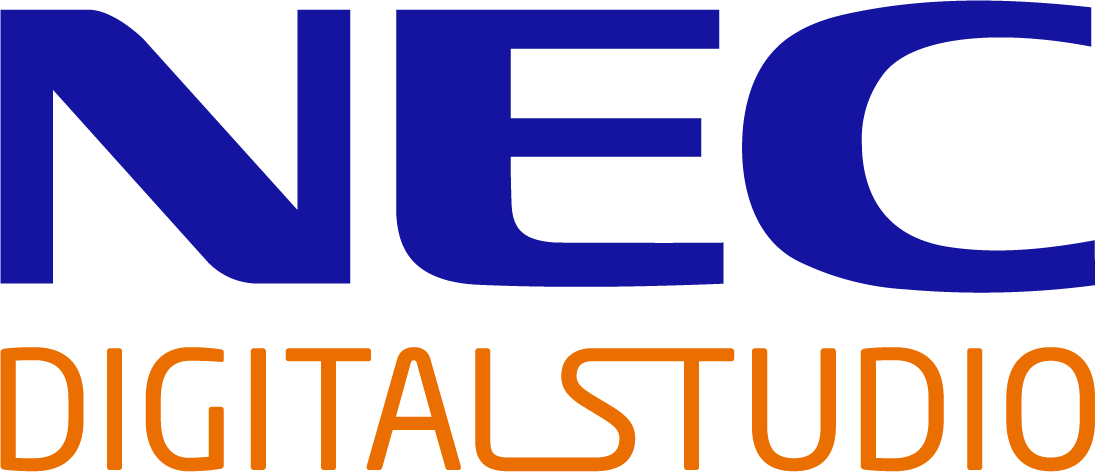 12 December 2025 · Articles
12 December 2025 · Articles
5 ways to embrace diversity in user research teams
Unlike other design-related specialisms, there isn’t a traditional route into User Research (UR), and like many others, our team come from a wide range of backgrounds. In this article, Senior User Researcher Will Newton explains how we turn this ambiguity into opportunity at NEC Digital Studio and shares his top tips on utilising the diverse experience of UR teams to your advantage.

What do a Chinese Studies major, a psychologist, and an academic focused on working-class English writers have in common? They are all part of our User Research (UR) team. Unlike many other disciplines, there’s no fixed route or standard curriculum to become a User Researcher. The tools and approaches of the field are slowly resolving themselves into a standard shape, but the people that use those tools come from a surprising array of backgrounds.
I’ve been working in this field for 15 years, and I don’t know anyone who didn’t gravitate into User Research from another other fascinating area, nor have I met someone whose childhood ambition was to be a User Researcher. I have, however, observed that the field seems to attract people with a similar set of characteristics: curiosity, intellectual agility, and a deep-seated desire to know how people work with systems, and how to improve that relationship.
At NEC Digital Studio, we’ve identified five ways to embrace and capitalise on a team with diverse backgrounds:
1. Train to a ‘core curriculum’ of skills
The experience and expertise of our user research team spans an array of approaches, schooling and disciplines. Whilst we want to celebrate this diversity, we also use our team meetings and our Design School to cross-train in a ‘core curriculum’ of skills.
As well as reinforcing basic practice skills such as discussion guide development, interview technique, or presenting results, this training ‘levels the playing field’ for our staff across seniority and experience levels. Senior researchers, who may have entered the field before the widespread adoption of trauma-informed or AI-assisted practice, have a chance to update their skillset; junior researchers, who due to Covid lockdowns may have spent their entire career doing only remote video interviews, can skill up in a variety of in-person and participatory research approaches.
This cross-training means the entire team has a working knowledge of current best practice, informed and influenced by their unique backgrounds and experiences. This allows us to deliver work that consistently impresses clients with its breadth of holistic consideration.
2. Formalise gathering fresh perspectives on a project
The advantage of having a UR team with such diverse backgrounds is that there’s always someone to provide a new lens through which to look at a project.
It’s become our standard practice to invite another researcher (not on the project team) to review our discussion guides, note taking formats, analysis approach and synthesis outputs in a mid-project review or crit.
The diversity of our team is key for this ‘second set of eyes’. For public sector clients, this could be conducted by someone with experience in the MoD or NHS; or for a Homelessness mitigation project, with someone who has years of experience in social work.
For teams on long-term or particularly intense projects, this ability to get fresh eyes on our work is invaluable. As user researchers, we’ve all experienced ‘data fatigue’, but having a colleague look at the problem from an entirely different background can help correct for bias, identify patterns the project team may have missed, or suggest a helpful new approach to sorting or presenting data.
3. Work to actively and regularly share specialist knowledge
We intentionally share our specialist knowledge by facilitating bimonthly learning sessions. Here, we discuss our experience across our team and with the broader organisation. These range from informal chats to full-on presentations with a PowerPoint deck and breakout activities.
This ongoing personal development cycle ensures that team members with specific experience can identify and coach team members with similar interests, and likewise, team members know who to go to with specific thorny problems. Importantly, it serves as a form of ongoing team building, giving User Researchers a better sense of one another and helping a largely remote workforce bond.
The key is to make these sessions a regular part of your rhythms and rituals, and low-pressure. Schedule a series of learning sessions that keeps information flowing but doesn’t interfere with project work; encourage the entire team to attend; and treat each session like a ‘mini-break’ – people can be eating lunch or sipping tea, as long as they’re there and participating.
4. Research Operations can develop a standard toolkit of tools and templates
Due to the differing backgrounds, our team has a wide variety of writing styles, research approaches, and levels of familiarity with various software packages and tools. If we were each starting from scratch on every project, formatting, tone of voice and version control would quickly become unmanageable.
This is where our skilled Research Operations (ReOps) function serves as a ‘guiding hand’ behind the scenes, developing and educating the rest of the UR team in ethics, consent and trauma-informed recruitment and practice. The ReOps team develops and curates a library of templates and approaches that impose structure around the UR team’s disparate skills. These shared tools and templates make sure our clients and research participants all receive the same level of care and tone of voice throughout the project arc.
5. Our diversity helps us work with a diverse audience
The number and variety of people who NEED user research is never-ending: designers, software engineers, and managers often find themselves doing User Research to help shape more user-centric products. Managers, HR personnel and executives often find themselves doing User Research to improve internal processes and be more responsive to employees. The variety in our background and experience means that we are well prepared to communicate and work with those from a range of disciplines, with a range of understanding of UR.
Interested in learning more about User Research?
Through our Design School we have developed our learnings from our diverse team into our course, Making Sense of User Research. The course is aimed at not only those who are working in User Research, but also those who work with User Researchers, to gain a better understanding of the field and the approaches taken.


